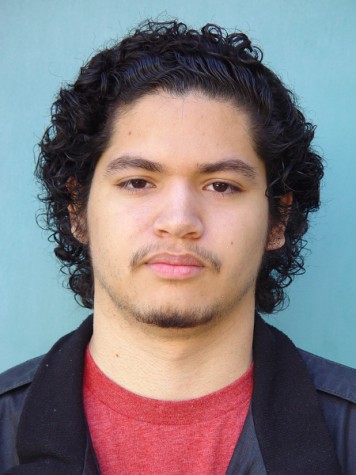Collectable toy cars, jewelry and many other items were on sale at GCC’s upper lot swap meet, as a variety of customers and merchants united for the day in search for either a bargain or a profit.
There was a steady pace of activity March 15 as potential buyers surveyed 70,000 square feet of space showcasing rare antiques, pottery, paintings and more. Many of the visitors, older than the average GCC student, have attended this swap meet for most of its 14-year existence.
Ted Julian, a vendor retired from working in the oil fields, stated that he does not normally sell at this swap meet, but that his family had drafted him for the day. He said the original reason his family began selling at the swap meet was to get rid of old, used items.
“That’s how it started out – to get the crap out of the attics,” Julian said.
Other vendors have attended the swap meet regularly for years and have befriended the customers.
Earl Wilson, a vendor who retired from the Marine Corps after 21 years of service, said that he recognizes most of the people every month who stop by to check out his old books and albums.
Wilson explained the difference between Glendale’s swap meet and the Melrose Trading Post, where he is also a regular vendor.
“I go to Melrose and they’re a different clientele,” Wilson said. “They’re a younger crowd. mostly yuppies, musicians and so-called actors. Over here the buyers are mostly older and they’re looking for real collectables.
The Melrose Trading Post is held every Sunday and averages from about 3,000 to 4,000 attendees compared to GCC’s 2,500.
“You can take a real nice piece of pottery over there [Melrose] and they wouldn’t even know what they’re looking at,” Wilson said. “Over here they do. It’s a whole different ball game.”
According to Jon Harris, who is from the community services department on the Garfield campus and program assistant of the swap meet, the reason for having a swap meet is to raise money for the general funds of the college.
When GCC sells a booth (three consecutive parking stalls, 25 by 15 feet), the money goes directly to the college. However, actual profit by the vendors stays with the vendors.
Other vendors, such as Richard Arnold, are new at the prospect of selling at the college. Arnold specializes in selling Wedgwood pottery, which has been around since 1769.
Most of his pieces have a single-tone color (blue being the most common) with a white decor symbolizing historical events.
“I’ve been collecting it for years,” Arnold said, proud of his collection which spans from simple tea cups to large bowls. “I picked them up mostly on my travels.”
Arnold mentioned that on the previous weekend he attended the Rose Bowl swap meet but did not sell as much as he had at this swap meet. Perhaps that was due to the fact that older customers are more interested in pottery, or maybe it is because he sells at bargain prices.
“I sell way below the normal pricing,” Arnold said. Then when a middle-aged couple wandered by his collection, he did not miss the opportunity to make a sale, “That bowl goes for about $350, but I sell it for $100.”
All of the vendors (whether they sell once a year or all 12 times a year) are required by state law to hold a valid re-seller’s permit and pay sales tax to the State Board of Equalization on all items, new or used, sold on the premises.
However, occasional sellers (those who clear their closets and garages of their own used items) are not required to have a seller’s permit.
Being an occasional seller is how some of the long-timers became regulars at the swap meet and many of the vendors have a large collection of items on sale. Julian’s 15-by-25 foot set-up is an example.
“Personally, I’ve been trying to sell those books,” Julian said, signaling to a pile of novels that had an elderly couple’s attention. “Now my son, he collects these toys, and these are popular.”
“That airplane,” Julian continued, pointing to an old weathered-down tin plane, “looks to me like a piece of junk, but [my son] wants $80 for it because it’s rare.”
Julian then walked over to a wooden sewing machine he owned and examined it for a bit. “I don’t even know if it still works,” he said. When asked for the price on it, he replied, “I was going to ask for $50, but if anyone offers a deal, they probably got it.”
Julian went on to discuss the origin of his items. “These silver plates are prizes my daughters used to ride horses with in the shows,” he said. “I don’t know if they’re worth much, but I’m trying to get five bucks a piece for them.”
When asked if there’s anything he doesn’t like about the swap meet, Julian responded, “I don’t like getting up early in the morning. I froze my ass off all morning long.”
Vendors are admitted at 6 a.m. and early-bird parking is $5 from 6 to 8 a.m. Preferred parking in the parking structure is $2.
The event is held the third Sunday of every month from 8 a.m. to 3 p.m. The next swap meet will be held on April 19.
To obtain a dealer space, applicants must pre-register by paying a fee of $40 and complete the forms no later than 12:30 p.m. on the Wednesday prior to the weekend of the event. Registering the same day will drive the cost up to $50.
For any questions regarding the event, contact Harris at (818) 240-1000, ext. 5805. Swap meet office hours are Monday through Thursday, from 1:30 p.m. to
3:30 p.m.

